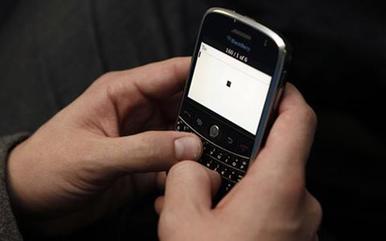
This is the VOA Special English Technology Report.
How common is teen sexting? Last week we reported on a new study of more than 1,500 Internet users age 10 to 17. It found that only two and a half percent of them had sexted in the past year. It also found that only one percent of the images might violate child pornography laws.
That study came from the University of New Hampshire. But another new report suggests much higher rates. Both studies defined "sexting" only to mean sending or receiving naked pictures.
Psychologist Jeff Temple is an assistant professor at the University of Texas Medical Branch in Galveston.
JEFF TEMPLE: "We found actually about 28 percent of teens had sexted."
Mr Temple says reports from medical offices and school officials support that finding.
JEFF TEMPLE: "One of the authors that will be on our paper with our data is a pediatrician. And he certainly sees this in his office. And from talking to school personnel and teens themselves, it certainly seems like it's happening quite a bit more frequent than the one percent reported in the New Hampshire study, and more in line with what we found in terms of about one in four kids have sent a sext."
And he says the behavior was the same for boys and girls.
JEFF TEMPLE: "We found that about a third of girls had sent a naked picture of themselves to another teen and about a third of boys had sent a naked picture of themselves to another teen."
Sexting is not the only issue involving teens and technology. A recent "Online Family Report" from computer security company Norton called attention to "cyberbaiting" in classrooms. Marian Merritt is the company's Internet safety advocate.
MARIAN MERRITT: "Kids may engage in purposely taunting, or teasing, or harassing the teacher, in order to get the teacher to have some kind of reaction or response that they then hope to capture on a cellphone camera, a video, and post online where people can view it. Now this can be incredibly embarrassing and humiliating and damaging to the reputation of a teacher."
Ms Merritt says Norton surveyed more than 2,300 teachers in 24 countries.
MARIAN MERRITT: "What we were surprised to learn is that one in five teachers globally knows somebody that it's happened to or has had it happen to themselves."
She also did a little research of her own.
MARIAN MERRITT: "Just typing in phrases like 'teacher loses it' and that sort of thing, because the term 'cyberbait' is still relatively unknown. But I was surprised to find there are lots of these videos out there."
The online survey also found that 70 percent of young people reported having had a negative experience online. Forty percent rated the experience as serious, includingcyberbullying, cybercrime or being contacted by strangers.
And that's the VOA Special English Technology Report, written by June Simms. Tell us if you or someone you know has experienced cyberbaiting. Share your comments at voaspecialenglish.com, where you can also find part one of this report. Transcripts, MP3s and podcasts of our reports are also available on our website. I'm Steve Ember.
pediatrician: 兒科醫(yī)生
cyberbaiting: 網(wǎng)上欺辱
cyberbullying: 網(wǎng)上欺凌
'Sexting' study finds low rate among young
最令人反感網(wǎng)絡(luò)新詞出爐 “sexting”居首
美青少年發(fā)性短信成風(fēng) 引政府擔(dān)憂
(來源:VOA 編輯:Rosy)
